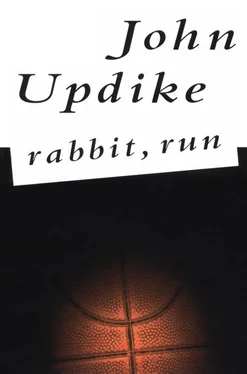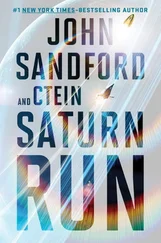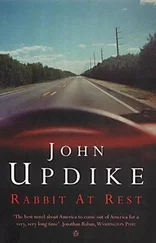"Who cares? That's the thing. Who cares what you feel?"
"I don't know," he says again.
She groans – from her face he feared she would spit – and turns and looks at the wall that is all in bumps from being painted over peeling previous coats so often.
He says, "I'm hungry. Why don't I go out to the delicatessen and get us something. Then we can think."
She turns, steadier. "I've been thinking," she says. "You know where I was when you came here the other day? I was with my parents. You know I have parents. They're pretty poor parents but that's what they are. They live in West Brewer. They know. I mean they know some things. They know I'm pregnant. Pregnant's a nice word, it happens to everybody, you don't have to think too much what you must do to get that way. Now I'd like to marry you. I would. I mean whatever I said but if we're married it'll be all right. Now you work it out. You divorce that wife you feel so sorry for about once a month, you divorce her or forget me. If you can't work it out, I'm dead to you; I'm dead to you and this baby of yours is dead too. Now: get out if you want to." Saying all this unsteadies her and makes her cry, but she pretends she's not. She grips the back of the chair, the sides of her nose shining, and looks at him to say something. The way she ís fighting for control of herself repels him; he doesn't like people who manage things. He likes things to happen of themselves.
He has nervously felt her watching him for some sign of resolution inspired by her speech. In fact he has hardly listened; it is too complicated and, compared to the vision of a sandwich, unreal. He stands up, he hopes with soldierly effect, and says, "That's fair. I'll work it out. What do you want at the store?" A sandwich and a glass of milk, and then undressing her, getting her out of that cotton dress harried into wrinkles and seeing that thickened waist calm in its pale cool skin. He loves women when they're first pregnant; a kind of dawn comes over their bodies. If he can just once more bury himself in her he knows he'll come up with his nerves all combed.
"I don't want anything," she says.
"Oh you got to eat," he says.
"I've eaten," she says.
He tries to kiss her but she says "No" and does not look inviting, fat and flushed and her many—colored hair straggled and damp.
"I'll be right back," he says.
As he goes down the stairs worries come as quick as the click of his footsteps. Janice, money, Eccles' phone call, the look on his mother's face all clatter together in sharp dark waves; guilt and responsibility slide together like two substantial shadows inside his chest. The mere engineering of it – the conversations, the phone calls, the lawyers, the finances – seems to complicate, physically, in front of his mouth, s., he is conscious of the effort of breathing, and every action, just reaching for the doorknob, feels like a precarious extension of along mechanical sequence insecurely linked to his heart. The doorknob's solidity answers his touch, and turns with a silky click.
Outside in the air his fears condense. Globes of ether, pure nervousness, slide down his legs. The sense of outside space scoops at his chest. Standing on the step he tries to sort out his worries. Two thoughts comfort him, let a little light through the dense pack of impossible alternatives. Ruth has parents, and she will let his baby live; two thoughts that are perhaps the same thought, the vertical order of parenthood, a kind of thin tube upright in time in which our solitude is somewhat diluted. Ruth and Janice both have parents: on this excuse he dissolves them both. Nelson remains: here is a hardness he must carry with him. On this small fulcrum he tries to balance the rest, weighing opposites against each other: Janice and Ruth, Eccles and his mother, the right way and the good way, the way to the delicatessen – gaudy with stacked fruit lit by a naked bulb – and the other way, down Summer Street to where the city ends. He tries to picture how it will end, with an empty baseball field, a dark factory, and then over a brook into a dirt road, he doesn't know. He pictures a huge vacant field of cinders and his heart goes hollow.
Afraid, really afraid, he remembers what once consoled him by seeming to make a hole where he looked through into under lying brightness, and lifts his eyes to the church window. It is, because of church poverty or the late summer nights or just carelessness, unlit, a dark circle in a limestone facade.
There is light, though, in the streetlights; muffled by trees their mingling cones retreat to the unseen end of Summer Street. Nearby, to his left, directly under one, the rough asphalt looks like dimpled snow. He decides to walk around the block, to clear his head and pick his path. Funny, how what makes you move is so simple and the field you must move in is so crowded. His legs take strength from the distinction, scissor along evenly. Goodness lies inside, there is nothing outside, those things he was trying to balance have no weight. He feels his inside as very real suddenly, a pure blank space in the middle of a dense net. 1 don't know, he kept telling Ruth; he doesn't know, what to do, where to go, what will happen, the thought that he doesn't know seems to make him infinitely small and impossible to capture. Its smallness fills him like a vastness. It's like when they heard you were great and put two men on you and no matter which way you turned you bumped into one of them and the only thing to do was pass. So you passed and the ball belonged to the others and your hands were empty and the men on you looked foolish because in effect there was nobody there.
Rabbit comes to the curb but instead of going to his right and around the block he steps down, with as big a feeling as if this little sidestreet is a wide river, and crosses. He wants to travel to the next patch of snow. Although this block of brick three—stories is just like the one he left, something in it makes him happy; the steps and windowsills seem to twitch and shift in the corner of his eye, alive. This illusion trips him. His hands lift of their own and he feels the wind on his ears even before, his heels hitting heavily on the pavement at first but with an effortless gathering out of a kind of sweet panic growing lighter and quicker and quieter, he runs. Ah: runs. Runs.












